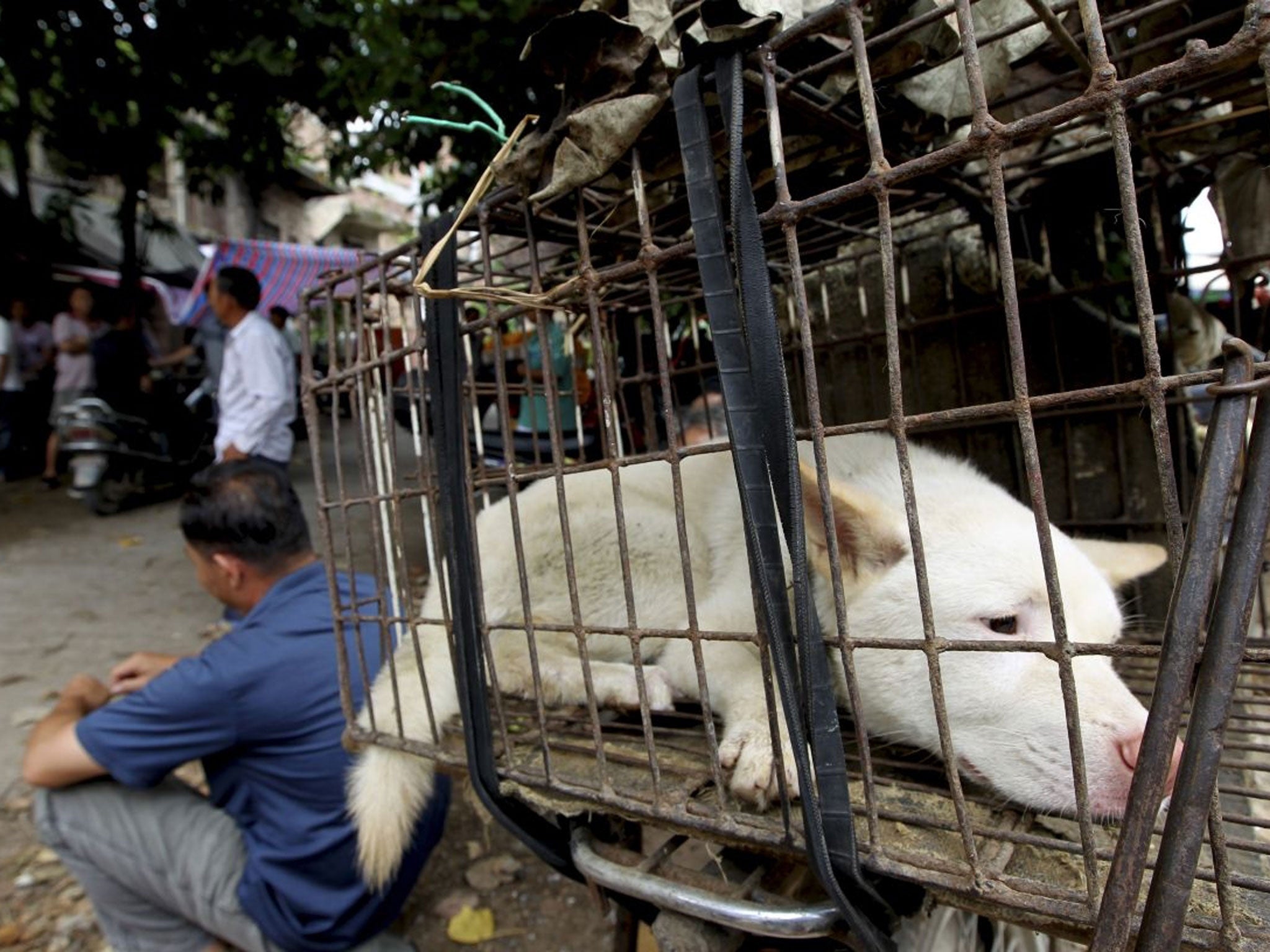Chinese city holds dog-meat summer solstice feast early to avoid animal rights protests
WARNING: Contains images some readers may find disturbing

Residents of a Chinese city where thousands of dogs are slaughtered for Summer Solstice events have failed to avoid the criticism of animal rights activists by holding feasts early.
As part of annual celebrations usually held on 21 June, some people in Yulin, in southern China's autonomous Guangxi Zhuang region, eat dog meat served with lychees and drink liquor. According to tradition, the practice is thought to maintain the diner’s health during winter.
But in light of negative attention from activists in recent years, the events have already taken place, with photos on state media appearing to show groups of Yulin city residents tucking into plates of dog meat and vegetables. Other photos, which circulated widely on Chinese microblogs, depict skinned, cooked dogs hanging from hooks at street stalls or piled on tables.
Activists have used petitions and social media websites to raise awareness of the avoidance tactic, and descended on the city to protest outside slaughterhouses or markets where the dogs are sold.
Campaigners complain that the feasts are a public health risk. As the dogs are often grabbed off streets around the country, or allegedly stolen from pet owners, the animals undergo no quarantine to ensure they are free of disease. A further danger comes in the toxic chemicals often used to poison the dogs that could also harm humans, they claim.
Deng Yidan, an activist with Animals Asia, said the public backlash hurts the image of Yulin and China.
“Negative coverage is growing — dog theft, criminal activities, food hygiene issues, and rabies fears — not to mention the division in society between those for and against the festival — together these have brought significantly more negative publicity to Yulin than economic benefits,” Deng said in a statement.
The growing uproar around the event reflects the increasing affluence of ordinary Chinese people, who keep pets, travel overseas and are changing their attitudes toward traditions.
Public pressure saw another dog meat festival in eastern Zhejiang province cancelled since 2011, despite dating back hundreds of years.
The Yulin government has sought to distance itself from the feasting, saying it is not officially endorsed. State media reports say the government told restaurants to remove references to dog meat from their menus and signboards — though it did not bar the sale and consumption of the meat, which is not illegal in China.
The government has denied the formal existence of such a festival, saying it is a culinary habit practiced only by some businesses and people.
Additional reporting by AP
Subscribe to Independent Premium to bookmark this article
Want to bookmark your favourite articles and stories to read or reference later? Start your Independent Premium subscription today.

Join our commenting forum
Join thought-provoking conversations, follow other Independent readers and see their replies